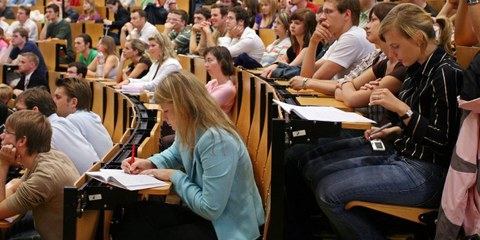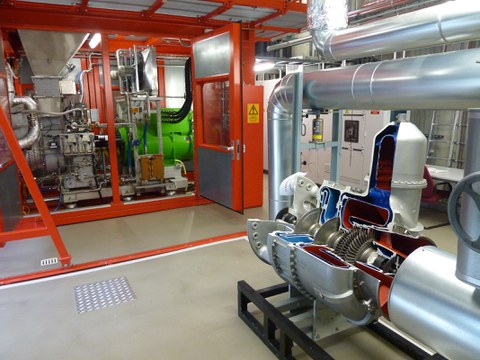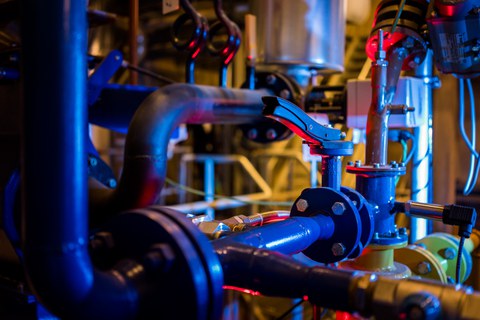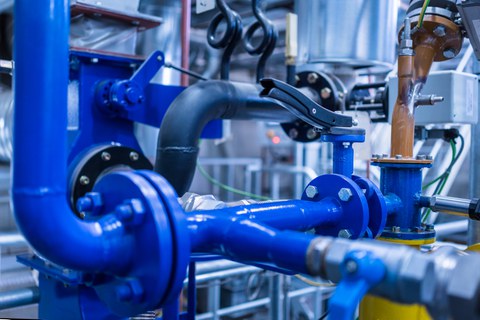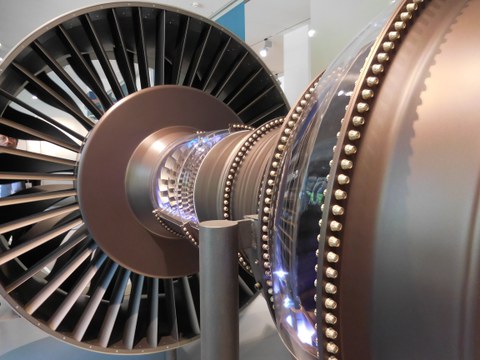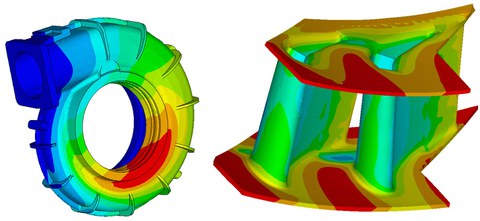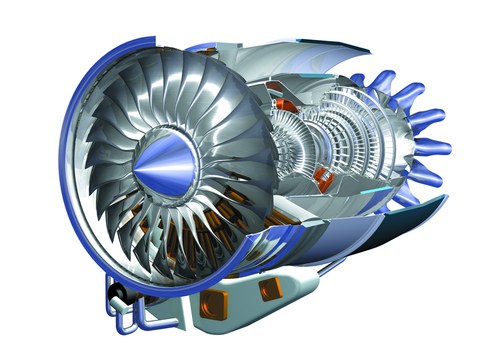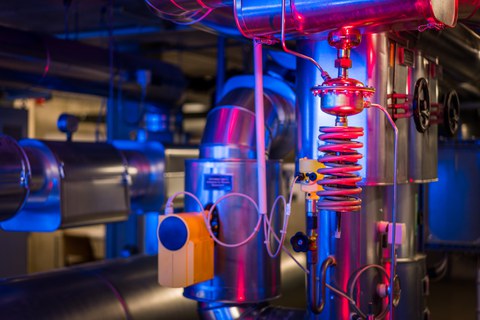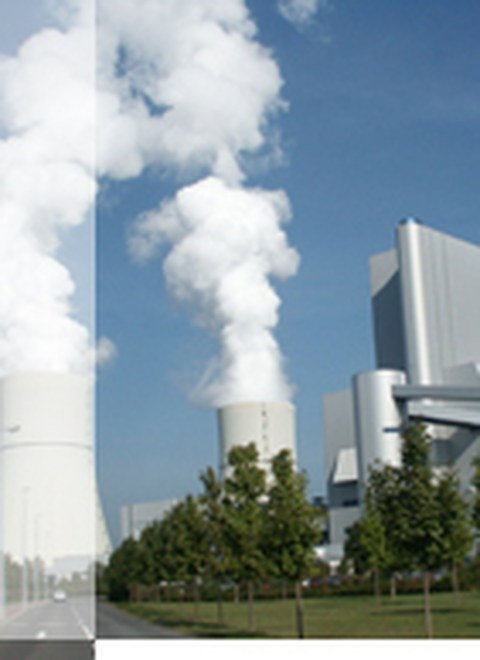Lectures
Overview of lectures
This course is carried out in the module "Energy engineering I" for students of Industrial engineering, specialising in "Power engineering". On the basis of an introductory overview of aspects of the usage of primary energy resources in energy plants, gas turbine and combined gas-steam power plants, steam power plants and cogeneration units are discussed with regard to their operating principle, circuits, parameters and plant engineering including environmental protection measures. Knowledge about cost analysis and cost-effectiveness evaluation is deepened and applied.
-
Aspects of the usage of primary energy resources in energy plants
-
Operating principle, circuits, parameters, plant engineering and environmental aspects of thermal energy plants
- Conventional steam power plants operating with fossil fuels
- Gas turbine power plants and combined gas-steam power plants
- Steam power plant operating with nuclear fuels
- Cogeneration units -
Energetic and environmental efficiency of cogeneration (CHP)
-
Considerations for the planning and economic operation of power plants
Documents / Lecture notes / Download
OPAL network: 708673585
This course of studies in the basic course of the diploma study programme Process Engineering and Natural Materials Technology provides basic knowledge about the load, strength calculation and constructional design of apparatus elements, i.e. tank mantles, bottoms and covers, cut-outs and nozzles, flange connections and support elements. It serves to understand the procedures used in the regulations for pressure equipment design. The main focus of the subject area "Pipelines" is on the planning and construction process, the elongation compensation, the pipeline support, the calculation of the support span and the basics of the pipe statics calculation.
1. Apparatuses: Characterisation, classification and structure in principle
2. Regulations for pressure equipment / pressure-bearing plant components
3. Design and dimensioning principles for pressure-bearing components
3.1 Loads and classification
3.2 Failure modes and limit conditions for usability
3.3 Materials
3.4 Characterisation of methods of dimensioning
3.5 Tank mantles
3.6 Tank bottoms
3.7 Cut-outs and nozzles
3.8 Flange connections
3.9 Support elements
4. Pipelines, valves and safety devices
4.1 Planning foundations
4.2 Elements/components of piping
4.3 Basics of pipe statics calculation
4.4 Valves and safety devices
4.5 Design and planning principles
Documents / Lecture notes / Download
OPAL network: 849281024
This course in the main course of the study programme Mechanical Engineering, course of studies of Energy Technology imparts knowledge and methods for the design and construction of apparatuses and pipelines. It is part of the module "Heat exchangers, pipelines and tanks" and addresses in particular the structure-mechanical design, based on analytical methods. In addition, in the chapter "Pipelines", pipe statics calculation is discussed and examples are dealt with.
1. Apparatuses: Characterisation, classification and structure in principle
2. Regulations for pressure equipment / pressure-bearing plant components
3. Design and dimensioning principles for pressure-bearing components
3.1 Loads and classification
3.2 Failure modes and limit conditions for usability
3.3 Materials
3.4 Characterisation of methods of dimensioning
3.5 Tank mantles
3.6 Tank bottoms
3.7 Cut-outs and nozzles
3.8 Flange connections
3.9 Support elements
4. Pipelines, valves and safety devices
4.1 Planning foundations
4.2 Elements/components of piping
4.3 Basics of pipe statics calculation
4.4 Valves and safety devices
4.5 Design and planning principles
Documents / Lecture notes / Download
OPAL network: 709656584
This lecture requires basic knowledge of turbomachinery. The focus of the chapter Steam Turbines is the design of the stages, taking into account the spatial flow, the stress of long, twisted blades, the wet steam and supersonic flow in turbine stages, the load change and turbine control as well as the steam extraction, tapping and the steam consumption diagram. In the subject area of gas turbines, the sub-components of the gas turbine plant, i.e. the compressors, the combustion chamber and the gas turbine, are examined in more detail and knowledge of the operating behaviour of gas turbine and combined gas and steam turbines is imparted.
-
Development of the steam and gas turbine construction
-
Process control and switching of gas turbine plants and combined gas-steam plants
-
Application areas of gas turbine plants
-
Constructive design of the plant components of a gas turbine plant
- Construction features of modern gas turbine plants for power plants
- Compressor
- Combustion chamber
- Gas turbine and special aspects of gas turbine design
- Auxiliary and ancillary plants -
Operating behaviour of gas turbine and combined gas and steam plants
- Partial load behaviour of gas turbine plants
- Operating behaviour of the compressor of a gas turbine plant
- Effect of changed suction conditions on the performance of the gas turbine plant
- Starting the machine -
Process control and switching of gas turbine plants
- Steam cyclic process: Parameters and influencing variables
- Heat circuit diagrams, building types of gas turbines, heat transfer at condensing turbines -
Selected chapters on Design of steam turbines
- Stage design with consideration of the spatial flow
- Stress of long, twisted blades
- Supersonic flow in turbine stages
- Wet steam flow in turbine stages -
Operational behaviour of steam turbine plants
- starting of steam turbines
-Elongation behaviour
- Load change and turbine control
- Steam extraction and tapping, steam consumption diagram -
Monitoring, security and protection equipment
Documents / Lecture notes / Download
OPAL network: 1221492740
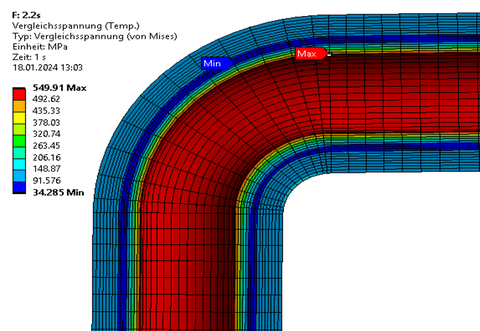
Vergleichspannung Rohrleitungen
This course is offered as an optional specialisation in the module Combustion Engines in the course of studies Automobile and Railway Engineering. The subject of the course is the design, process control, circuits and operating behaviour of gas turbines and combined gas and steam plants, design and operating behaviour of exhaust gas turbochargers and gas turbines for vehicle drives.
-
Development of the gas turbine construction
-
Process control and switching of gas turbine plants and combined gas-steam plants
-
Areas of application of gas turbine plants
-
Fundamentals of energy conversion in turbomachine stages and important parameters
-
Plant components
- Compressor
- Combustion chamber
- Gas turbine and special aspects of gas turbine design
- Auxiliary and ancillary plants -
Design and operating behaviour of gas turbines for vehicle drives
-
Design and operating behaviour of exhaust gas turbochargers
Documents / Lecture notes / Download
OPAL network: 1231388683
This course is offered in the main study course for students of " Renewable Energy Systems". In the course, the fundamentals of energy conversion in turbomachines, important parameters, design principles of axial and radial turbomachine stages, energy conversion losses in turbomachine stages as well as basics for technical design of blading, rotors, housings and seals are taught.
-
Characterisation and classification of turbomachinery
-
System-regulating characteristics of simple plants with turbomachinery
-
Fundamentals of energy conversion in turbomachines and important parameters
-
Design principles of axial and radial turbomachine stages
-
Losses in energy conversion in turbomachine stages
-
Technical design of turbomachinery components
- Blading of axial and radial turbomachine stages
- Rotors
- Housing
- Seals between fixed and rotating components -
Operational behaviour of turbomachinery
Documents / Lecture notes / Download
OPAL-Netz: 6488195073
This course is offered in the main study course for students of the course of studies of Energy Technology and is part of the module "Fundamentals of Energy Machines". In the course, the fundamentals of energy conversion in turbomachines, important parameters, design principles of axial and radial turbomachine stages, energy conversion losses in turbomachine stages as well as basics for constructive design of blading, rotors, housings and seals are taught.
-
Characterisation and classification of turbomachinery
-
System-regulating characteristics of simple plants with turbomachinery
-
Fundamentals of energy conversion in turbomachines and important parameters
-
Design principles of axial and radial turbomachine stages
-
Losses during energy conversion in turbomachine stages
-
Constructive design of turbomachinery components
- Blading of axial and radial turbomachine stages
- Rotors
- Housing
- Seals between fixed and rotating components -
Operational behaviour of turbomachinery
Documents / Lecture notes / Download
OPAL network: 85449114
This course is primarily offered for students of "Renewable Energy Systems" and deals with applications of heat pumps and ORC processes (Organic Rankine cycle = ORC). It is about the characterisation of working fluids, possible process management and the design of ORC plants in the context of energy market assessment. The module is offered jointly with the Chair of Refrigeration, Cryogenics and Compressor Technology.
Documents / Lecture notes / Download
OPAL network: 9717547009
This course is part of the specialisation module "Power machinery" of the course of studies "Power engineering". Special knowledge and methods for the hydraulic and technical design of centrifugal pumps are taught. In the framework of the course, a constructive assignment is treated.
-
Introduction
-
Basis
-
Design of radial and diagonal rotors
-
Design of axial rotors
-
Design of guidance mechanisms
-
Operational behaviour
-
Technical design
Documents / Lecture notes / Download
OPAL network: 709656609
This course is a lecture series that is as well offered in the "Studium Generale". The topic of the first part, conducted by the Chair of Thermal Power Machinery and Plants, is "Environmental aspects of technical processes and plants for the electric power and heat generation". The second part, conducted by the Chair of Magnetofluiddynamics, is mainly about "Measurement technology for environmental protection". Part 3 by the Chair of Hydrogen and Nuclear Energy covers the "Safety of nuclear power plants". Environmental aspects of the usage of energy are discussed in part 4 "Environmental and safety aspects of refrigeration plants" by the Chair of Refrigeration, Cryogenics and Compressor Technology.
Documents / Lecture notes / Download
OPAL network: 2712436737
The Colloquium is carried out jointly with the Chair of Turbomachinery and Flight Propulsion and is an additional offer for the students of Energy Technology, Aerospace Engineering and Applied Mechanics. It is a lecture event, where in particular speakers from the industry talk about current developments and issues of the operation of turbomachinery and thereby provide insights that make a great complement and consolidation of academic courses. The event furthermore offers the opportunity of getting into contact for students' project assignments.
Documents / Lecture notes / Download:
The lectures will take place on the following dates,
each Thursday, at 16:40 (6th DS) in the Zeunerbau, room 114/H.
| Date | Topic | Speaker |
|
19.05.2022 |
Dr.-Ing. Nurettin Tekin, Hydrogen Product Manager, KGE Europe GmbH |
|

